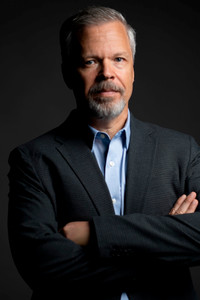New faculty member in Arts: Dr. Derrick Nault
Fri. May. 9, 2025
Congratulations to our new faculty members in the Faculty of Arts! We look forward to introducing each of them to you in the coming weeks.
Here we feature Dr. Derrick Nault, Assistant Professor in the Department of Indigenous Studies.

(Photo supplied)
Dr. Tracy Whalen, Dean of Arts, states “I’m delighted to welcome Dr. Derrick Nault to the Department of Indigenous Studies. A Red River Métis scholar, Dr. Nault promises to be a wonderful mentor for students and collaborator with faculty, especially given his work in material culture, memory, and identity.”
Welcome Dr. Nault and thank you for sharing about yourself with us!
Dr. Derrick Nault Bio
Derrick M. Nault is an assistant professor in the Department of Indigenous Studies at the University of Winnipeg and a citizen of the Red River Métis Nation. He has held academic appointments at numerous institutions, including the University of Tokyo, Algoma University, and the University of Calgary. His current research examines Métis history, focusing on kinship networks, Indigenous allyship, and the role of storytelling and material culture in shaping historical memory and identity. In addition to his academic work, Dr. Nault has contributed to two upcoming episodes of Michif Koonteur, a Métis podcast, and a documentary in progress called We and Us, which focuses on the descendants of participants in the Red River Resistance. His direct ancestors include prominent defenders of Métis rights such as Louis Riel’s cousin André Nault, a key figure in the Red River Resistance; and Jean-Baptiste Parenteau and Damase Carrière, councillors in Riel’s 1885 provisional government. He is also a direct descendent of Marie Pélagie (Dumont) Parenteau, a sister of Métis leader Gabriel Dumont.
We've invited our new faculty members to answer some questions of their choice. Here is what Dr. Nault had to say!
Arts: What courses are most looking forward to teaching at UWinnipeg – and why?
I’ve already taught two Introduction to Indigenous Studies courses at UWinnipeg, and quite enjoyed both of them. One focused on themes related to Indigenous art, history, and culture, while the other explored Indigenous politics and governance. One new course I am teaching in Winter 2026 is called Métis Identity, Culture, and Rights. Since I am Métis and do research in this area, that would be the course I am most eager to teach. Regardless of what I am teaching, I am always excited to meet new students and hope my courses spark their curiosity about Indigenous histories and cultures.
Arts: What was one thing you learned as an undergraduate that was/has been really important to you – and why?
The most important thing I learned was to adopt a growth mindset. It is very easy to give up after not doing well on an assignment and believe that you are lacking in some way, whether that be thinking you aren’t talented or intelligent enough. I learned that if you apply yourself and believe in yourself you can improve. It’s also important to ask questions and be curious in general as well as seek out constructive feedback from peers and professors. That doesn’t mean I did all of those things very well as an undergraduate but over time I learned that having such a mindset is essential for personal growth.
Arts: If you’ve come from elsewhere, what are/were you most interested in checking out in Winnipeg?
I was born and raised in Manitoba but left to do my doctoral studies at Queen’s University in Kingston, Ontario. From there, I went on to live in numerous cities abroad and in Canada. So I am basically coming home, after quite a long time living elsewhere. I am interested in seeing what has changed and what has stayed the same. The first place I went to that did not exist when I lived in Winnipeg was the Canadian Museum for Human Rights, which was amazing to visit. I am also keen on checking out Qaumajuq at the Winnipeg Art Gallery and attending more Manitoba Métis Federation meetings and events.
Arts: And finally a separate and optional question: Is there anything else you’d like to share with us?
Yes! I’m deeply committed to making Métis and Indigenous histories accessible to wider audiences. To that end, I’m currently building a personal academic website to share my research related to Red River Métis. I believe strongly in public history and using digital platforms to foster dialogue and learning beyond the classroom.
I’ve also come to appreciate the importance of mentorship — especially because I didn’t have a mentor as an undergraduate student. It made me appreciate how impactful even small acts of support can be. I hope I can create a learning environment where students feel psychologically safe, encouraged to share their ideas, and find guidance in navigating their own academic and personal journeys.
